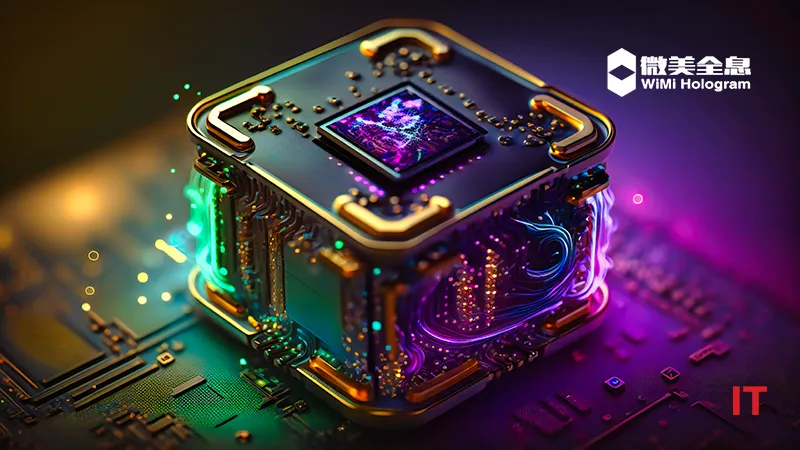WiMi Hologram Cloud Inc., a global leader in Hologram Augmented Reality (AR) technology, announced the successful development of a cutting-edge hybrid CPU-FPGA quantum AI simulator. This groundbreaking development is designed to simulate quantum computer behaviors, providing a platform to test and optimize quantum algorithms on traditional classical computers. Traditional quantum simulators often face limitations in processing power, hindering the ability to handle large-scale quantum systems. To overcome these challenges, WiMi’s hybrid CPU-FPGA approach combines the processing power of the central processing unit (CPU) with the parallel computing strength of field-programmable gate arrays (FPGA).
Key Components of the WiMi Hybrid CPU-FPGA Quantum AI Simulator
WiMi’s CPU-FPGA architecture simulator is built on two primary components, each serving a critical role in simulating quantum systems:
- CPU Component: The CPU is responsible for managing high-level logic and executing complex algorithmic tasks within the simulator. The robust computational power of the CPU enables the simulator to run intricate quantum algorithms and machine learning models with high efficiency.
- FPGA Component: The FPGA is designed to handle parallel computing tasks, such as simulating quantum states and performing quantum gate operations. The FPGA’s parallel processing capabilities significantly enhance the speed of quantum simulations, while also lowering power consumption.
Also Read: Aetina Partners with Qualcomm to Revolutionize Edge AI with Innovative On-Prem Solutions
Optimizing Quantum AI Simulation with FPGA Integration
The hybrid CPU-FPGA quantum AI simulator utilizes the flexibility and programmability of FPGAs to accelerate quantum computing tasks. An FPGA is a reconfigurable hardware device that can be programmed to perform specific computing operations, making it ideal for parallelizing complex quantum algorithms. By incorporating FPGA into the simulation framework, WiMi’s simulator boosts the simulation speed of quantum algorithms, while ensuring greater energy efficiency.
A crucial part of WiMi’s hybrid approach is the integration of software-hardware co-design optimization. The software layer includes a specially developed simulator framework, which efficiently manages quantum states and executes quantum gate operations. This software is seamlessly integrated with the hardware, allowing for smooth execution of algorithms. On the hardware side, high-speed interfaces connect the CPU and FPGA, ensuring flawless collaboration between the two for optimal performance in handling complex computational tasks.
Future-Proof Design with Scalability and Flexibility
The WiMi quantum AI simulator is designed with flexibility and scalability in mind, ensuring that it can adapt to future developments in quantum algorithms and AI models. The continuous evolution of quantum computing and AI technologies requires a simulator capable of supporting new technologies and algorithms as they emerge. WiMi’s design addresses this by providing a foundation for future upgrades and innovations.
WiMi Hybrid CPU-FPGA Quantum AI Simulator: A Comprehensive Technical Framework
WiMi’s hybrid CPU-FPGA quantum AI simulator is structured with three key layers:
- Hardware Layer: Comprising high-performance CPUs and custom FPGA chips, which are interconnected via high-speed interfaces to facilitate seamless collaboration.
- Software Layer: A dedicated software framework supports quantum algorithm simulations and the training of AI models, incorporating quantum state management, quantum gate operations, and machine learning libraries.
- Interface Layer: This layer ensures compatibility with existing quantum computing software and AI platforms, enabling smooth integration into current research and development environments.
Revolutionizing Quantum Computing and AI Research
The technical intricacies behind WiMi’s hybrid CPU-FPGA quantum AI simulator involve multiple layers of optimization, including hardware architecture, software-hardware co-design, and compatibility with practical applications. This innovative solution not only advances the fields of quantum computing and AI but also opens new possibilities for future technological development.
WiMi’s new hybrid CPU-FPGA quantum AI simulator is poised to serve as a powerful tool for businesses and research institutions aiming to explore quantum algorithms and develop novel AI applications. With the continuous progression of quantum computing, this simulator will play an integral role in future quantum computing and AI research. Through its hybrid approach, WiMi is leading the way in quantum AI simulation technology and paving the way for the integration of quantum computing and artificial intelligence. This breakthrough technology is set to accelerate quantum algorithm research and foster the convergence of quantum computing and AI, unlocking new opportunities for technological advancements.
































